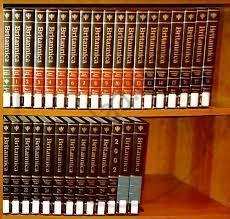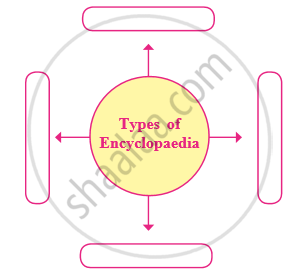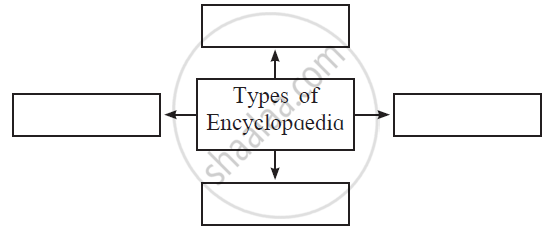Topics
Historiography : Development in the West
History : Applied History
Working of the Constitution
Historiography : Indian Tradition
The Electoral Process
Political Science : Working of the Indian Constitution
Applied History
Political Parties
History of Indian Arts
- What is ‘Art’?
- Indian Traditions of Visual Arts (Drik Kala): Painting
- Prehistoric Paintings
- Mural Paintings and Cave Painting
- Folk Styles of Paintings
- Classical Styles of Painting
- Miniature Paintings in Manuscripts
- Modern Indian Paintings
- Indian Traditions of Visual Arts (Drik Kala): Sculpture Art
- Indus Civilization Sculpture
- Folk Styles of Sculptural Art
- Classical Styles of Sculptural Art
- Indian Iconography
- Indian Traditions of Visual Arts (Drik Kala): Architecture and Sculpture
- Rock-cut Architecture
- Temple Architecture
- Indo-Islamic Architecture
- Indo-Gothic architecture
- Indian Traditions of Performing Arts
- Indian Theatre
- Indian Music
- Indian Dance
- Present Scenario of the Performing Arts
- Art, Applied Art, and Professional Opportunities
Social and Political Movements
- Movement
- Important Movements in India
- Tribal Movement
- Farmers Movement
- Worker's Movements
- Women’s Movement
- Environment Movements
- Consumer Movement
Mass Media and History
Challenges Faced by Indian Democracy
Entertainment and History
Sports and History
Tourism and History
Heritage Management
History - Imperialism
History - 20th Century Age of conflict
History - Emancipation of Asia and Africa
History - World after World War 2
Political Science
Geographical discoveries and colonization
- Concept for Geographical Discoveries and Colonization
Africa
- Imperialism - Africa
Asia: India, China, Japan
- Concept for Asia: India, China, Japan
Dictatorships in Europe, Second World War and world
- Concept on Dictatorships in Europe
- Concept for Second World War and World
First world war
- Concept on First World War
The League of Nations
- Concept for the League of Nations
Russian Revolution
- Concept for Russian Revolution
United Nations Organization
- Concept for United Nations Organization
Africa
- Emancipation of Africa
Asia
- Emancipation of Asia
Globalization
- Globalization After World War II
Scientific and Technological Progress
- Scientific and Technological Progress After World War II
Cold war
- Formation of the Cold War
Social Diversity and Democracy
- Social Diversity
- Coccept for Caste/Race and Democracy
- Concept for Language and Democracy
- Cocnept for Religion and Democracy
- Concept for Gender and Democracy
- Concept for Democracy and Diversity
Challenges to Democracy Remedial Measures to the Challenges
- Concept for Challenges to Democracy Remedial Measures to the Challenges
Internal work
Democracy
- Democracy - Meaning, Types and Characteristics
Political Parties and Types
- Political Parties
- Importance of Political Parties
- Major National and Regional Parties in India/ Types of Political Parties
- Encyclopedia
- Types of Encyclopaedia
Notes
Encyclopaedia
- The word 'encyclopaedia' comes from the Greek word 'enkyklios paideia, 'which translates to 'universal knowledge' and was regarded in ancient Greece as a valuable talent.
- A systematic collection of knowledge or information on numerous topics is an encyclopaedia.
- Encyclopaedias organise their knowledge or information in a certain way.
- The primary goal of encyclopaedias is to organise and make accessible the knowledge that is already available.

Specimen of Encyclopaedia
Types of Encyclopaedias:
Encyclopaedias can be approximately divided into four types.
1. Dictionaries:
- The sequence of the words in dictionaries varies from language to language (alphabetical order is more common).
- It provides word definitions, synonyms, and etymology.
- There are many different kinds of dictionaries
(i) Comprehensive dictionaries,
(ii) Dictionaries that only contain a certain kind of word,
(iii) Terminology dictionaries (which deal with terms specific to a field of expertise),
(iv) Etymological dictionaries
(v) Thesaurus
(vi) Idiom and proverb dictionaries, etc.

Dictionaries
2. Comprehensive Encyclopaedia (Vishwakosh):
- The Vishwakosh comes in two varieties.
- It covers any topic imaginable (such as ‘Encyclopaedia Britannica,’ ‘Maharashtriya Dnyankosh,’ ‘Marathi Vishvakosh,’ etc.).
- It provides in-depth details on the selected subject. Bharatiya Samkruti Kosh, Vyayam Dnyankosh, etc. are a few examples.
3. Encyclopaedic (Koshsadrush) Literature:
- It is comparable to an encyclopaedia, which has scholarly articles that cover every element of one or more predetermined subjects.
- For instance, the volumes of ‘Maharashtra Jeevan,’ ‘Shahar Pune,’ ‘Yearbook’ (Manorama, Times of India), etc.
4. Indexes:
- An index is typically found at the bottom of a book.
- The alphabetical listings of individuals, subjects, locations, key phrases, reference books, etc. are called indexes.
- For example, the Marathi periodicals index created by S.G. Date. Indexes aid in the discovery of needed information and make the content of a book more accessible.
If you would like to contribute notes or other learning material, please submit them using the button below.
Related QuestionsVIEW ALL [6]
Read the following extract and answer the questions.
| Encyclopaedias make vast volumes of knowledge accessible to readers. It can help in satisfying their curiosity. Encyclopaedias provide fundamental information on any topic, in order to understand it properly. Thus, the reader gets motivated to read extensively. Encyclopaedias make the existing knowledge easily accessible to scholars and researchers and also highlight the research areas, which have not yet received enough attention. Encyclopaedias are indicators of the state of cultural ripeness of a society. The intellectual and cultural needs of a society determine what kind of encyclopaedic literature would be created. Accuracy, meticulousness, objectivity, standardised format of presentation and updated information are the criteria for designing a structure of an encyclopaedia. In order to incorporate the latest available information revised editions of encyclopaedias or supplements to original editions need to be published. Encyclopaedias are arranged either in alphabetical order or according to the order of topics. The type of order is decided by keeping the convenience of readers in mind and the ease of accessibility to the information. An index at the end of the encyclopaedia is very convenient in this regard. |
- Which one of the following is a benefit of an encyclopaedia?
(i) Knowledge
(ii) Information
(iii) Caters to researchers
(iv) All of these - What do encyclopaedias indicate?
(i) Cultural ripeness
(ii) Literacy rate
(iii) Traditional values
(iv) Economic growth - Do you think encyclopaedias are useful to students of history?




